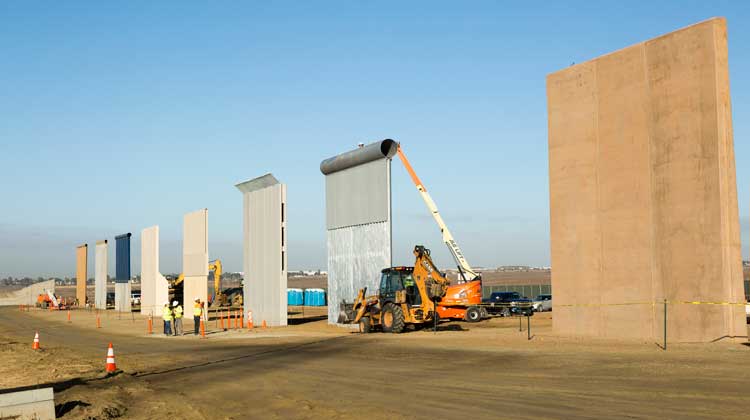
Well-traveled American Enterprise Institute resident scholar Michael Rubin describes himself as an analyst, not an advocate, and has covered a lot of miles in the Middle East and South Asia. Compiling information and talking to people in these regions is part of his job. Despite members of Congress, President Trump, and opinion makers haggling over border issues and the effectiveness (or lack thereof) of a border wall, Rubin has reached a conclusion about securing a border.
“Increasingly, wherever I go—be it in Morocco, be it in Israel, be it in Saudi Arabia or Iraq, be it in India where I just was last week, or in the past when I’ve been driving along the India/Bangladesh border—the fact of the matter is, there are all these walls there, there are all these fences,” he told Homeland411. “It quickly became apparent that while Americans navel gaze and basically consider that we reinvent the wheel every single time, that there are massive precedents out there.”
As such, Rubin began compiling information on walls and border barriers around the globe and why they were there. He published his latest observations in a Jan. 23 column in the Washington Examiner.
In the piece, he noted 13 rather hot spots around the globe where walls, barriers, and fences have increased security.
Perhaps the most well-known mention in the piece is the wall and fence combination between Israel and the West Bank that is credited with a 90 percent drop in terror attacks.
Rubin also cited a 1,700-mile barrier between Morocco and Algeria that contributed to a cease fire in the Western Sahara War that raged from 1975 to 1991.
The wall dividing Cypress is notable as well. “The irony of so many United Nations officials condemning Israel or Trump’s demands for a wall is that the United Nations itself built a wall dividing Cyprus in order to separate Turkish and Greek combatants,” he wrote. “While Cyprus remains divided, the wall ended the fighting.”
Other effective border walls and barriers Rubin noted include barriers in Northern Ireland, a border wall between Saudi Arabia and Yemen, and a quickly built 600-mile border fence between Saudi Arabia and Iraq to fend of Islamic State of Iraq and Syria advances.
Despite Rubin’s efforts, there’s no lack of detractors when it comes to a border wall’s efficacy. In the heat of the border wall debate in 2017, Time published a story and graphic noting how a wall would not work. David Bier, an immigration policy analyst at CATO Institute, devoted no less than 4,600 words to the issue in the May 2017 issue of Reason. And Department of Homeland Security Secretary Jeh Johnson in the middle of the 2016 presidential campaign also downplayed a wall’s effectiveness.
Still, in the Southwest, the border wall prototypes are being put through their paces, and the Los Angeles Times reported Jan. 19 that the “prototypes pass tests by military special forces.”
But whether or not the barriers will be completed across the Southwest is still uncertain, and politics weigh heavy on the debate. Rubin said he believes construction will begin on the wall, but whether or not it survives longer than the Trump administration is another matter. For Rubin, the wall is just common sense.
“I understand the arguments that people have against it, but the fact of the matter is, we didn’t need to be here,” Rubin said. “No democratic country can expect to remain democratic and allow its borders to remain undefended—in fact, that’s the chief job of any government.”
© 2018 Homeland411
Click here to subscribe to the Homeland411 weekly newsletter.